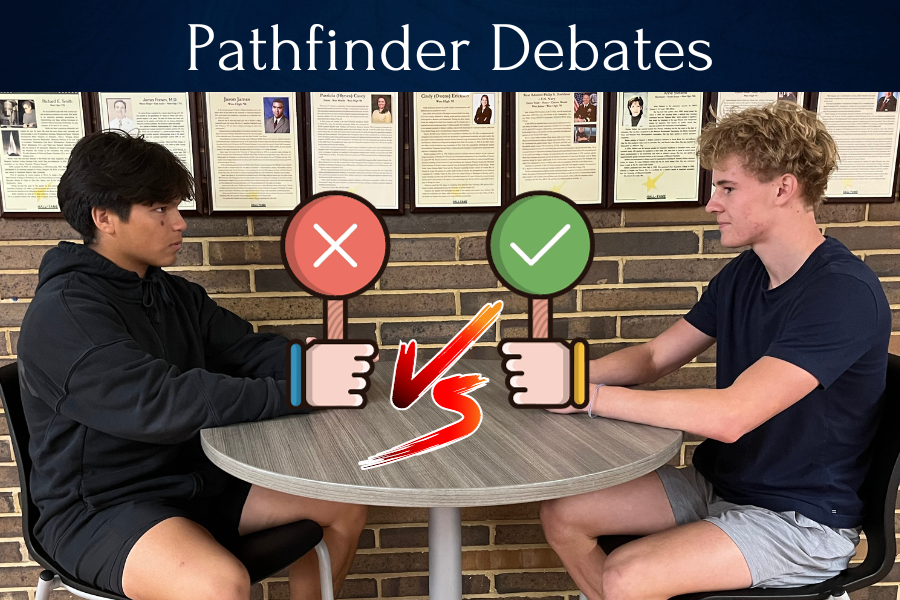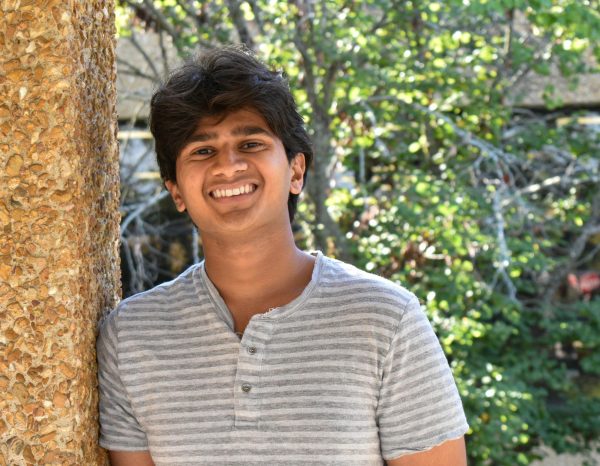[MUSIC PLAYS]
VOICE OF SOPHOMORE SAMIR SHAIK: Hey, West, I’m Samir Shaik.
VOICE OF SOPHOMORE GIANNA LIONELLI: And I’m Gianna Lionelli.
SHAIK: And welcome back to…
LIONELLI: “Asking for a friend,” the podcast where we talk about topics that aren’t talked about enough and what it means to be a high school student.
[MUSIC ENDS]
SHAIK: So, this episode is loosely inspired by one that another podcast called “Teenager Therapy” made, they’re a podcast that talks about a lot of the same things that we talked about with mental health with teens and high school, just being a student and the issues that come with that. And they made an episode called “When You’re Not Naturally Good at Something.” And it’s about feeling lesser than the people around you because you think that they’re better than you or that you’re just not as good as them.
LIONELLI: Because you’re not naturally gifted with something that they’re gifted with being really good at. The main thing that I think we’re going to talk about is mostly not feeling naturally good at academics, specifically because I feel like a lot of people can relate to that one. And then, of course, we’ll talk about other aspects of life as well. But I know that for me, personally, the biggest area where I struggle is academics.
SHAIK: Because with academics, sometimes, well, most of the time, some people are just naturally born with the ability to be able to comprehend things faster or learn things faster and pick up new skills faster. And that can be really, really helpful in school because you can learn things quickly and not spend too much time struggling with them. And, you know, pick up new topics and new skills faster.
LIONELLI: And you’re able to take the more advanced classes because you can learn at a faster pace. You can stuff more information in your head at a time. I knew day one of high school, there was absolutely no way I was going to take an AP or an honors class.
SHAIK: And that’s a smart decision because you know your limit, but I feel like there’s this culture where it’s like if you see “AP” or if you see the “honors” in front of it, you take it.
LIONELLI: Oh, for sure.
SHAIK: That toxic culture of just working yourself so hard and taking all these classes and being overworked and stressed out.
LIONELLI: Students wanting the “H” or the “AP” on their transcript. And obviously, students are going to find a way to get the answers for whatever they need in classes, whether that be an honorable way or not. Students are going to try. And so I mean, I guess you could probably pull out an H or an amazing grade in an AP class without really trying.
SHAIK: But then you lose the whole point of the AP.
SHAIK: And don’t get me wrong. I would rather have an H than a B in any scenario, but if I got that H from cheating, or from, you know, a dishonorable way of getting answers, or you know, getting that grade, it’s fine on the transcripts — I have the H, I have the GPA boost. But in life and in the future, people forget that an AP class isn’t just about the actual content of the class. Like with AP World History, it’s not just about history, you’re learning how to write under a time limit. You’re learning how to support your argument with evidence, there are greater skills in each of these classes that are being taught to you.
LIONELLI: Yeah, that you’re going to use in real life.
SHAIK: And if you don’t learn those skills, or if you do the class in a dishonorable way, sure, you might get the good grade, but your skill past high school, even past college, when you’re working in the workforce, whatever career you may take, these skills are important, even if they’re being presented in a way that might seem like they’re not as important. The skills are important. And if you don’t have that, you’re going to be struggling later on. So, I would rather have an H than a B. But if I got that B by doing my best always and struggling a little bit but learning the skills along the way, I think that’s more valuable in the long run than an H from cheating.
SHAIK: I feel like a lot of the kids in the honors classes kind of have this superiority complex. And sometimes I catch myself having it, too; I’m not trying to blame other people. But I feel like they think because they’re taking an honors class or an AP class, they think that they are…I don’t want to say “better.” They think, “Oh, I chose to challenge myself more than the kid who took whatever, a non-honors class, so I must be, you know, smarter than them or just better than them at the subject.” And sometimes that’s true. There’s always going to be a person who’s better than you at something, there’s a person who’s better than me at math and worse than me at math. So, I guess there’s not really a point in comparing.
LIONELLI: No, you can’t compare the normal classes to the honors or AP classes. There’s no comparison for English, really. The stuff we do and what we write for our research papers, and so on and so forth, are different. It’s the same thing with math because the students who are advanced in math are normally taking Algebra 2/Trig or Honors Algebra 2/Trig, and the ones who are on-level are taking Geometry, which are different subjects. So there is no comparison, really, to what you’re learning.
SHAIK: I think we live in a world where competition culture is the big thing.
LIONELLI: I mean, it’s so competitive because we just got 8 billion people on our planet; there’s a lot of people living here. Now more than ever, especially in the United States, people are going to college. People used to go to trade school, they didn’t go to college; they just picked up their skills somewhere else. But now, people need their skills with a degree. Yeah, like they need that.
SHAIK: It’s basically a prerequisite for any job. So, more and more people are signing up.
LIONELLI: People are taking gap years as well. So it’s making it more competitive for the people who just graduated. And now they’re competing with people who graduated in the past.
SHAIK: It’s just like, all this competition is happening. In high school, to prepare, there’s just this toxic competition culture that’s happening, where it’s just, “I have to be the best at everything. I have to do everything, take all the hard classes, do all the extracurriculars. And I’m supposed to feel like I have no time to do anything. I’m supposed to feel like that,” because that’s how you get into the good schools. That’s how you stand out in applications. But if there’s 1000 kids with the exact same, all AP, all honors, all these extracurriculars, then what makes them different?
LIONELLI: Right. Right now, it feels different because we’re in a school of 1000. But when all of the United States is applying for the same school, you might not stand out. So, I think you have to think beyond the classes and extracurriculars that you do in school to make yourself stand out. You have to think of something that you’re truly passionate about that’s worth more than any AP or honors class on your transcript.
SHAIK: Because people are taking the extracurriculars, and they’re doing the honors societies, and they’re doing the clubs, and they’re just doing it for the resume. They’re doing it for whatever in the future. But I guess what I’m trying to say is do things that you’re passionate about that you genuinely enjoy and find enjoyment in; not only will you like doing it because, I don’t know why I have to say that, but you should enjoy the things that you do for extracurriculars or do outside of school.
LIONELLI: While it might not look unique, you will excel at it, and that looks unique.
SHAIK: In my opinion, if you find enjoyment in doing a “common” or “regular” club that everyone does, do that club, do what you enjoy, if a million people do debate in America, and all the people who scout for colleges say “Oh, don’t do debate. It’s super common, and you want to stand out,” but you genuinely enjoy doing debate or any extracurricular for that matter…
LIONELLI: You’ll care about doing better, you will do better, you will excel, it will look good. And you will get into a good school.
SHAIK: And I know it’s important to think about your future but enjoy your time in high school, too. Do an extracurricular that you enjoy, even if it’s considered common. The mentality that a lot of these honors kids have where it’s “I’m better than everyone because I’m doing these unique clubs,” or “I’m doing these unique activities,” or “I’m devoting myself to these hard classes.” I think it’s not helpful at all because we’re all good at something. So, why don’t we stop comparing and just start celebrating our strengths and working on our weaknesses?
LIONELLI: Rule of thumb for everything in life: there’s always going to be someone who’s better than you.
SHAIK: Yeah. And you can’t help that.
LIONELLI: Your success is important, and you did amazing, and you did great. If you keep comparing yourself to other people who are better than you at this or that or the other thing, well, there’s always gonna be someone better than you. There’s always going to be someone better than those people who are better than you. It just continues. We’re all beautiful and have different strengths and our own ways, and we should just celebrate them and be appreciative of them because if you appreciate the strengths and talents that you do have, then you’re more likely to excel than compare yourself to others.
[MUSIC PLAYS]
LIONELLI: Thank you, guys, for listening to this episode. We really appreciate it.
[MUSIC ENDS]

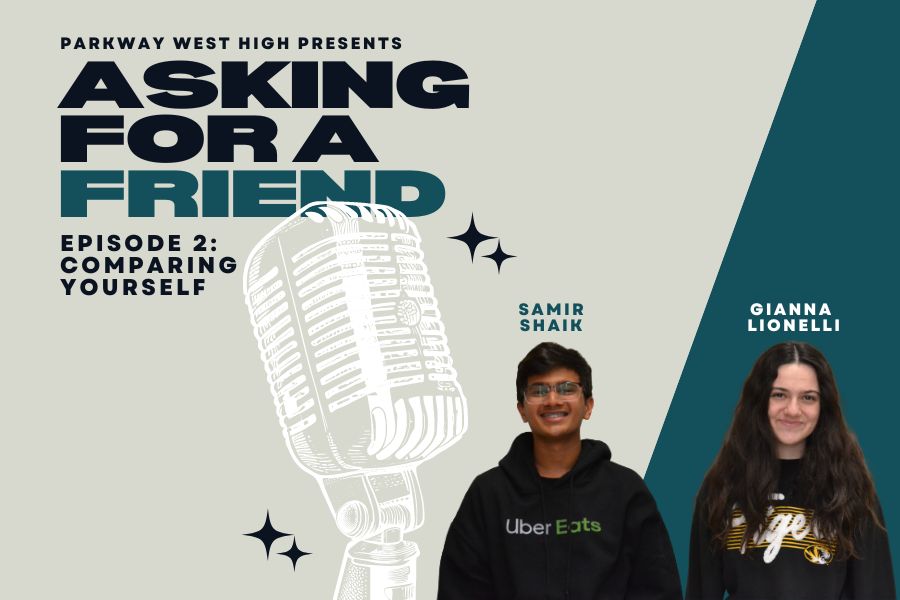

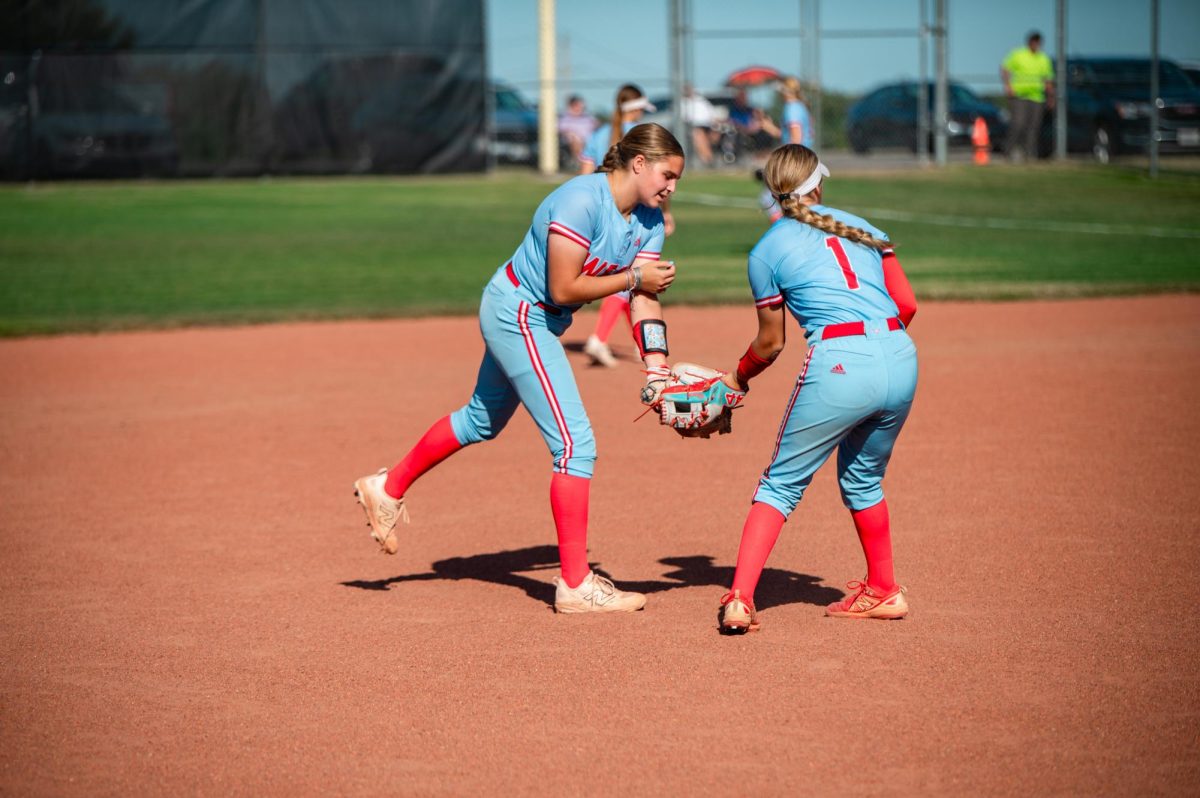
![Standing in front of the camera and next to Fox 2 News' Ty Hawkins, senior and varsity football player JaMont Brooks represents the varsity football team. As captain and outside linebacker, Brooks was one of four students selected to be interviewed live for the broadcast. “Overall, it was just a crazy experience being on the news. Even when I get older, I’ll tell my kids or grandkids I was on the news. My mom sent me a picture of me on the news [saying] ‘Oh my gosh, that’s my son.’ The Parkway West community felt amazing this morning. Everybody showed up at 6 [a.m.] and [will] show up 6 [p.m.] tonight too. Any time I go into a game, I go up there with the mentality that we’re going to try our best, and even the times we struggle, [I’ll] keep my head up,” Brooks said.](https://pwestpathfinder.com/wp-content/uploads/2025/10/DSC8122-Enhanced-NR-1200x799.jpg)
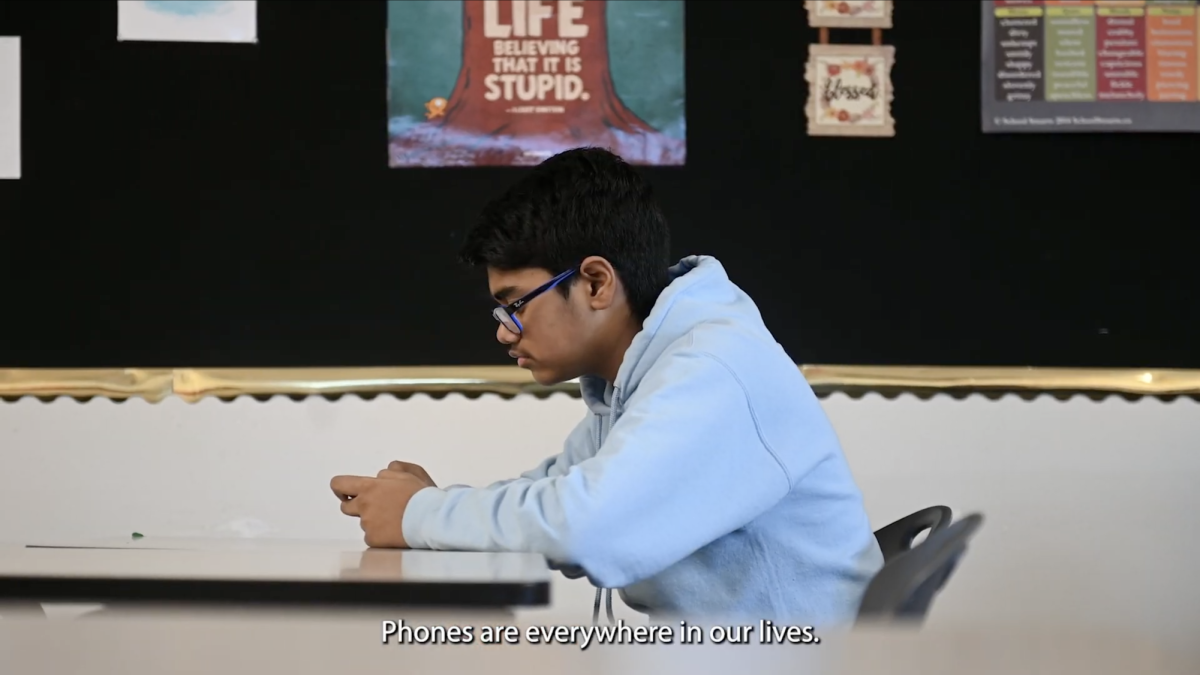
![Blue lights shining brightly, senior Riley Creely beatboxes into the microphone. Creely and the group began the performance in front of the blue lights, sparking interest from the audience. “The pep rally performance was fun. I got to beatbox for the first half of the song, which was hype. I liked to look into the student section [while I performed],” Creely said.](https://pwestpathfinder.com/wp-content/uploads/2025/09/DSC_5085-Enhanced-NR-1200x799.jpg)

![Leaping through the air, senior Tyler Watts celebrates his first goal of the season, which put the Longhorns up 1-0 against the Lafayette Lancers. Watts decided to play soccer for West for his last year of high school and secured a spot on the varsity roster. “[Playing soccer for West] is something I had always dreamed of, but hadn’t really had a good opportunity to do until now. It’s [really] fun being out [on the field], and I’m glad I decided to join the team. It’s just all about having fun with the boys and enjoying what time we have left together,” Watts said.](https://pwestpathfinder.com/wp-content/uploads/2025/09/DSC_1951-1200x855.jpg)
![Sophomore Natalie House pitches the ball during an intrasquad scrimmage for Red and Blue Night on Aug. 22. House played catcher for the varsity softball team. “I started [playing] softball when I was five. My brother played baseball, and I wanted to start sports like him. Scrimmaging against our own team is always kind of difficult because we all know each other's [weaknesses],” House said.](https://pwestpathfinder.com/wp-content/uploads/2025/09/DSC7191-1-1-1200x844.jpg)
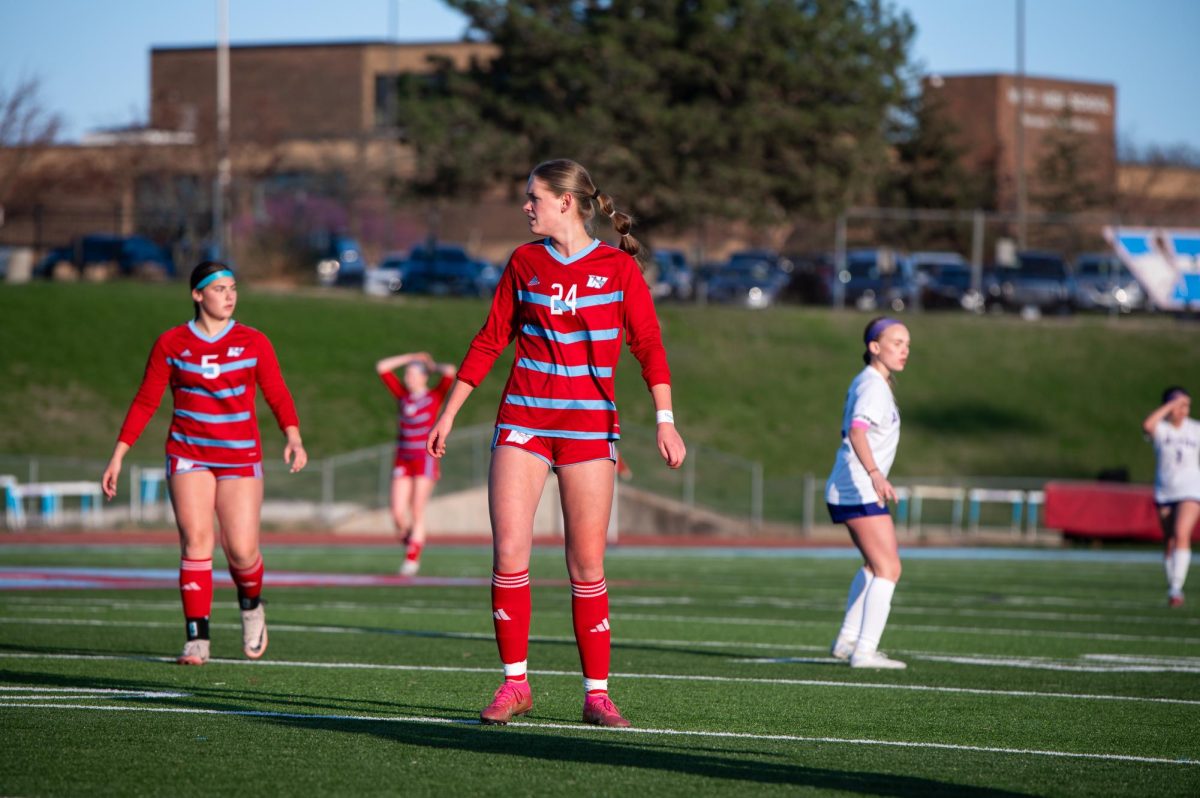
![Blending harmonies with dynamic control, senior Spencer Rahm takes the stage as part of the jazz choir's spring performance. Jazz Coffee House took place on April 22, marking the culmination of months of preparation by West High’s musicians. “To me, [choir] is an opportunity every day to get to sing with my friends and work on our songs that we have concerts for. [Seeing] the results after working together with people is really rewarding. Jazz Coffee House concert was a reflection and a result of all the hard work we've put in the last three months,” Rahm said.](https://pwestpathfinder.com/wp-content/uploads/2025/05/DSC_0214-3-1200x800.jpg)
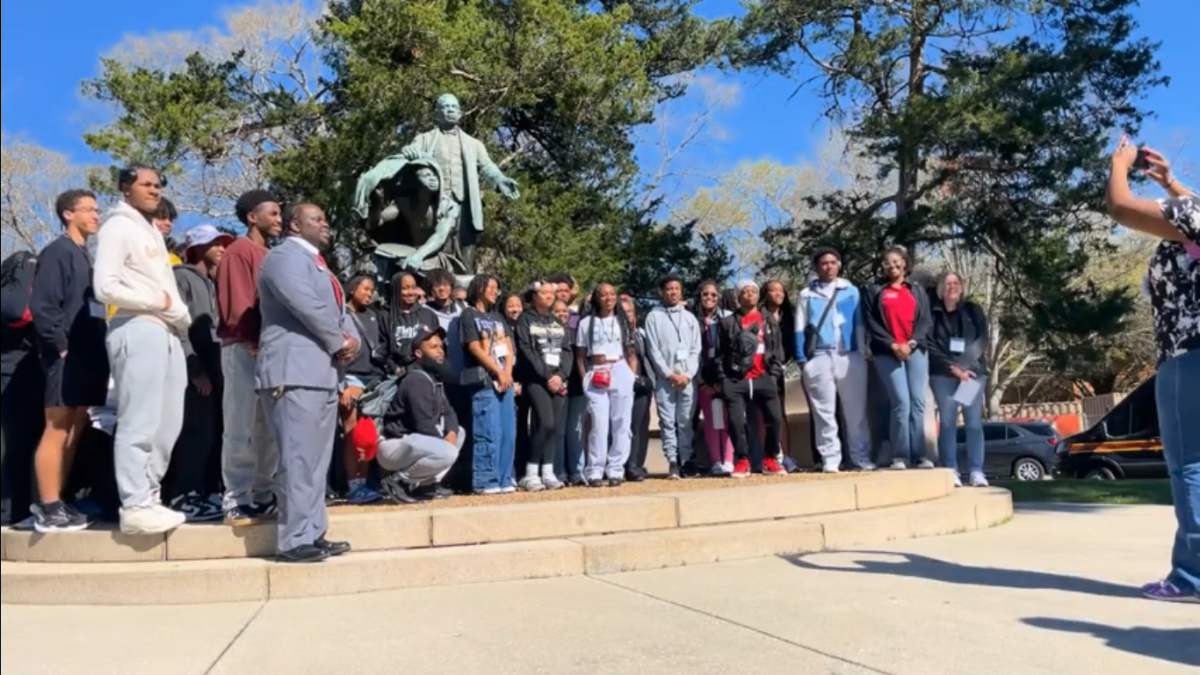




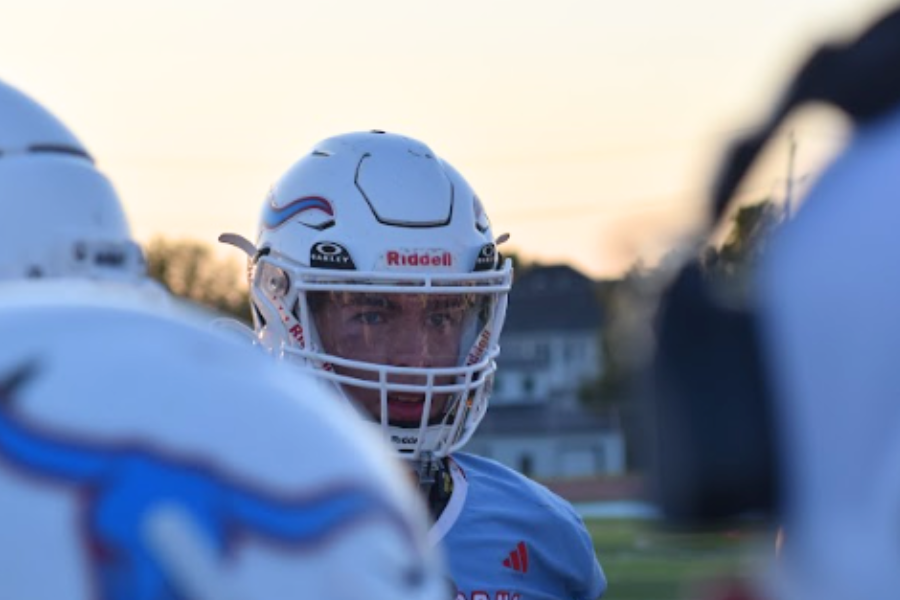


![In perfect shooting form and with eyes on the rim, junior Tyler Kuehl is about to shoot his next basket in the last game of the season against Marquette High School. Kuehl has been playing basketball since he was 5. “Even though I played basketball all my life, the game-winning shots can be pressure, it's confidence. If you're going into that shot and not thinking that you're gonna make it, it's obviously not going in. And if you believe, [it will]. That's the only way you can succeed,” Kuehl said.](https://pwestpathfinder.com/wp-content/uploads/2024/01/unnamed-32-1-1200x1200.png)

